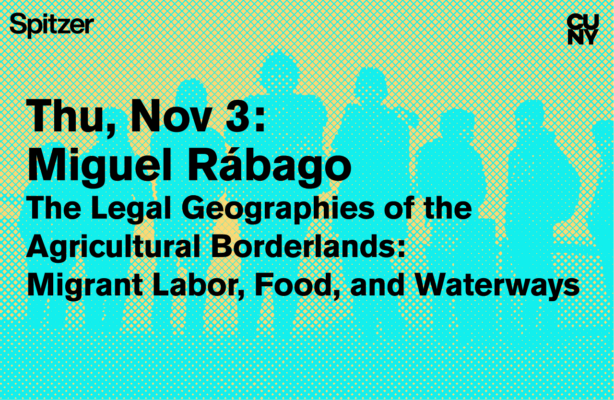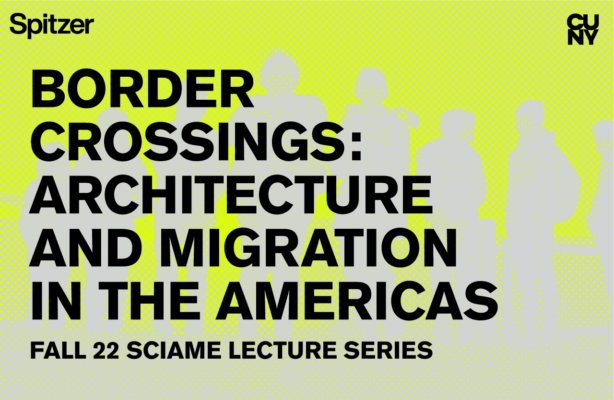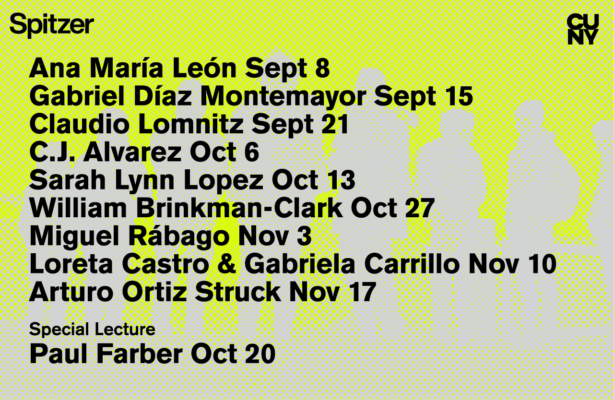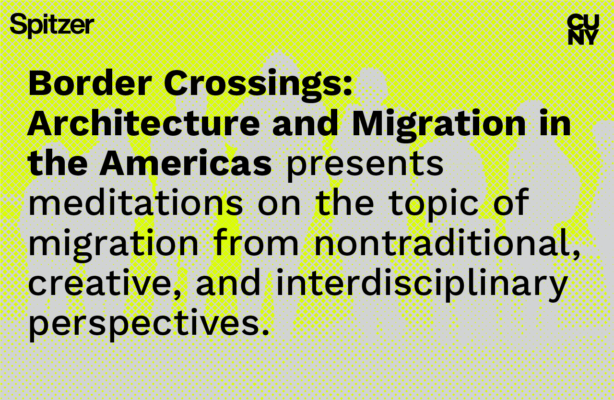Archived Video
Fall 2022 Sciame Lecture Series: Miguel Rábago
Archived Video
The Legal Geographies of the Agricultural Borderlands: Migrant Labor, Food, and Waterways
Thursday, Nov 3, 2022
6:00 pm - 7:30 pm
Sciame Auditorium (Room 107)
141 Convent Avenue
New York, NY 10031
Zoom option available
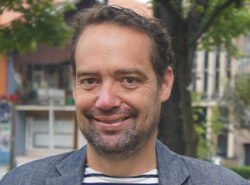
This lecture is held in-person and is part of the Fall 2022 Sciame Lecture Series, titled "Border Crossings: Architecture and Migration in the Americas."
Miguel Rábago Dorbecker is professor of law at CIDE Law School. Previously he was professor in the Law Department of Universidad Iberoamericana in Mexico City and visiting professor at the Universidade Federal do Para in Brazil and the Universidad de los Andes in Colombia. Most of his academic work is in the areas of legal theory, international law, and law and the humanities. Currently he is interested in the relationship between legal geography and the constitution of global value chains in the agricultural sector, and he is working on issues of transnational social mobilization, in areas such as labor, and the relationship with the constitution of space by law.
"The Legal Geographies of the Agricultural Borderlands: Migrant Labor, Food, and Waterways": This lecture is centered on the relationship between law and space in places where territory, jurisdiction, and state control both are amplified and collapsed, such is the experience on the U.S. and Mexico Borderlands. This territory is marked by the bodies of both of migrants forced to risk their lives crossing the evermore dangerous and extreme parts of the border but also the masses of formally and informally recognized agricultural workers. Some of these workers are permanent residents, others are seasonal workers, and still others have other legal status. Nevertheless, they represent the backbone of agricultural business in the U.S. They also have strong cultural, family, and economic ties to their homeland, both as fundamental links in global production chains in food products that are exported globally and even back to their communities in rural Mexico and as important sources of financing with their remittances. Continuous and massive migration from the Mexican rural landscape to the U.S. leaves many communities without agricultural expertise and dwindles their own production. Categorized under the contradictory term of essential workers, these workers have been made a priority under the migration policies of both the U.S. and Canada. These workers have also introduced new food staples and cultures in the U.S., and some of them have even developed their own food distribution systems. Finally, the lecture will close with the tensions around water sources in the border that are derived form agricultural production in the North, while diminishing the possibilities of social reproduction of communities in Mexico.
Visiting Scholar William Brinkman-Clark will introduce the speaker.
Suggested Readings:
Paqueteros and Paqueteras: Humanizing a Dehumanized Food System
Bay View Irrigation Case. Investment Arbitration.
"Border Crossings: Architecture and Migration" in the Americas presents meditations on the topic of migration from nontraditional, creative, and interdisciplinary perspectives. The distinguished speakers -- architects, landscape architects, architecture historians, social historians, a philosopher, an anthropologist, and an attorney -- question conventions, especially the conceptualization of migration as linear. They frame migration as a multivalent process, considering the lived realities and material conditions of migration, historically and in the present. Migration in the Americas is more than just the movement and resettlement of bodies, numbers that cross lines and appear/disappear in different places. Migration is not merely (dis)placement, it is also a metamorphosis. Migrants are human beings who are transformed to the core by their movement, and they transform not only their places of departure and arrival, but the entire space that is filled with their journeys.
All lectures are free, open to the public, and held in the Bernard and Anne Spitzer School of Architecture Sciame Auditorium with remote option available. See https://www.ccny.cuny.edu/return-campus for current requirements for in-person visitors.
For remote viewing via Zoom, please register here.
This lecture series is made possible by the Spitzer Architecture Fund and the generous support of Frank Sciame ’74, CEO of Sciame Construction.
Export as:


